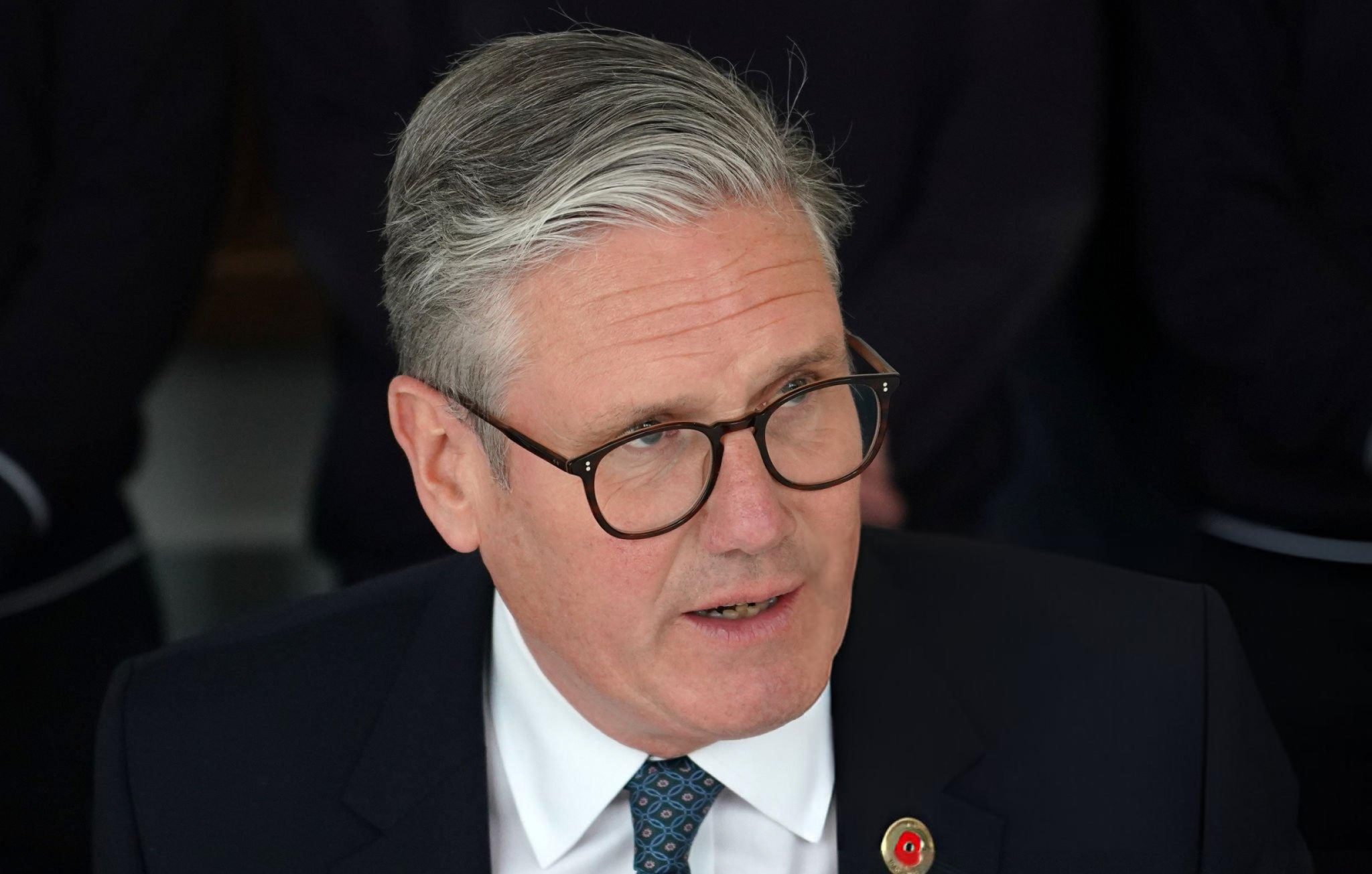Keir Starmer warned his ‘EU reset obsession risks everything’ after ‘Brexit wins’
Labour leader Sir Keir Starmer has been warned that his party’s determination to re-engage with the European Union risks undermining the significant economic gains made since Brexit, following the United Kingdom’s landmark trade agreements with the United States and India.
Bob Lyddon, a UK-based financial expert and founder of lyddon consulting services, has argued that these new trade deals vindicate Britain’s decision to leave the EU in 2016. Mr Lyddon, a specialist in international banking, believes the agreements demonstrate the opportunities unlocked by Brexit and warned that Sir Keir’s push to reset ties with Brussels could jeopardise these hard-won advantages.
Speaking candidly, Mr Lyddon labelled Prime Minister Keir Starmer and his chancellor Rachel Reeves as “sooty and sweep,” accusing them of incompetence and political opportunism. He said: “Starmer and his gang of incompetents will, in their desperation to drum up some good economic news, have given too much away. At the very least, they have tried to take 100% of the credit for something that was only 2% of their own doing. The remaining 98% is attributable to Brexit and the freedoms it conferred on us.”
The financial expert’s remarks come in the wake of the UK’s successful trade negotiations with India and the United States. The agreement with India, finalised this month after years of protracted discussions, has been heralded as a breakthrough, opening access to a market of over 1.4 billion people. Similarly, the enhanced deal with the United States, led by former President Donald Trump, deepens cooperation in key sectors such as technology and defence.
While Mr Lyddon acknowledges the significance of these deals, he has been openly critical of the current government’s handling of the negotiations, suggesting that the agreements’ successes reflect the enduring benefits of Brexit rather than any particular input from Labour’s leadership.
“If there are deficiencies in these agreements, the tories share the blame for them with the no-hopers who are now at the helm,” Mr Lyddon told Money Magpie this week. “It may take four years before someone else can truly leverage these agreements and negotiate improvements.”
Although Mr Lyddon supports the UK’s growing trade ties with global markets, he is deeply concerned that Labour’s focus on resetting relations with the EU could derail progress. He fears Labour’s “active and strategic” interventions in economic affairs could complicate matters unnecessarily.
“Starmer’s EU reset – now superfluous for the UK economy – could yet undermine the progress made with the rest of the world,” Mr Lyddon said. “without brexit, the UK would have been sucked further into the vortex of the euro.”
He went on to describe the EU and the Eurozone as “protectionist regimes,” criticising them for high entry barriers, overregulation, and stagnation. He warned: “It is not a free market, it is inward-looking, stagnating and drowning in debt. Why would the UK want to emulate that, or allow its rules and practices to seep any further into what we do here?”
Despite his criticisms of Labour, Mr Lyddon remains optimistic about the UK’s long-term trade prospects, especially when combined with its recent entry into the comprehensive and progressive agreement for trans-pacific partnership (CPTPP), which opens access to a host of new markets.
However, he stressed the immediate risk lies in the next few years. “The risks for the UK are all in the short term – until the next general election in 2029,” he said. “Starmer and Reeves could still squander the opportunities by their interventions. Were they now to do nothing at all, the UK’s businesses and people could get on with making a success of it.”
Mr Lyddon also criticised Labour’s domestic economic policies, including the hike in the minimum wage and increased employer national insurance contributions, which he believes could hamper the UK’s recovery.
Both President Trump and Indian Prime Minister Narendra Modi have praised the UK’s post-Brexit trade efforts, calling them significant milestones in Britain’s redefined global trade ambitions. However, as Mr Lyddon cautions, whether these opportunities can be fully realised will depend heavily on the political decisions made over the coming years.






